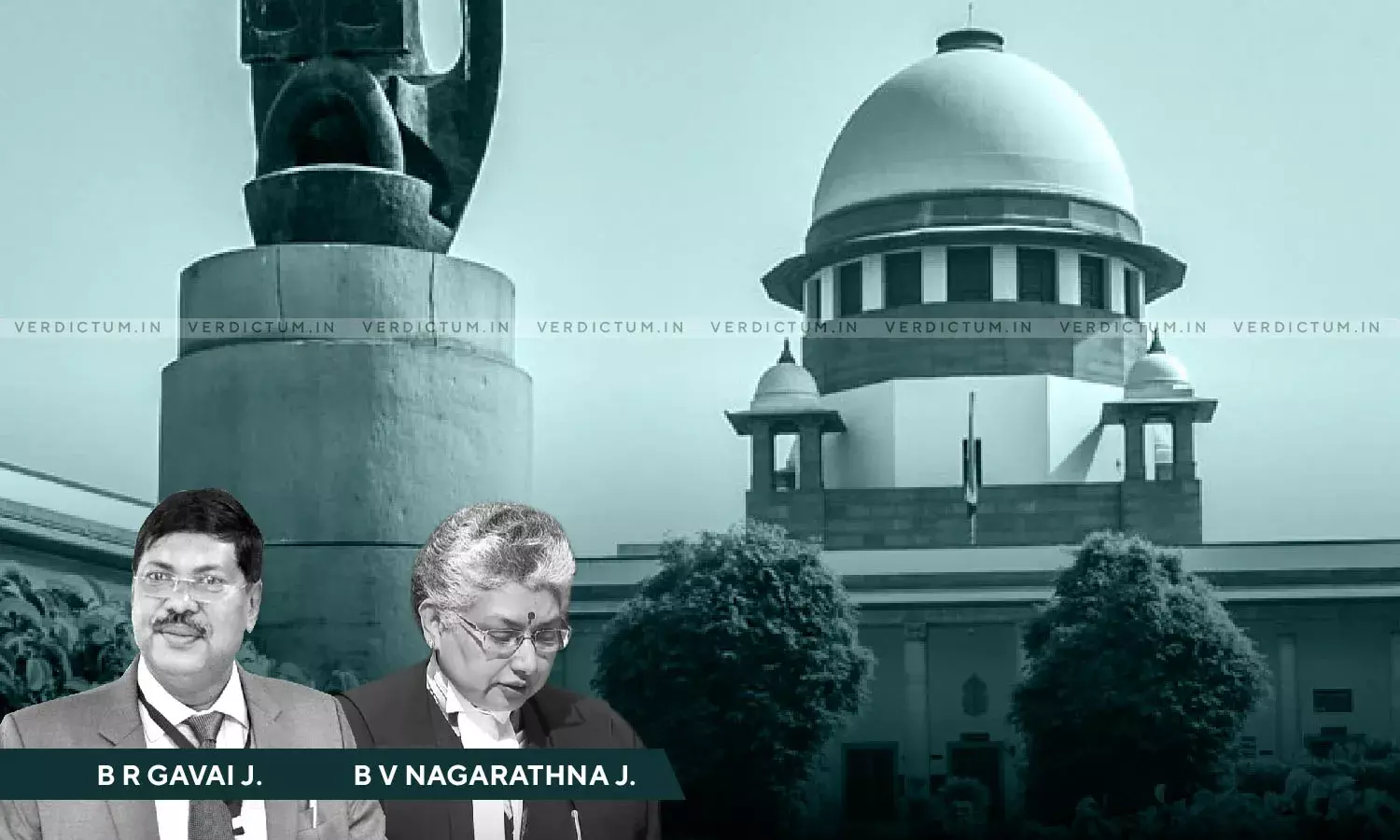Letter Of Credit Is Independent Of And Unqualified By Contract Of Sale Or Underlying Transactions- SC Reiterates

The Supreme Court has observed that a letter of credit is independent of and unqualified by the contract of sale or underlying transactions.
The Court has set aside and quashed the judgment passed by the National Consumer Disputes Redressal Commission and has restored the judgment and order passed by the State Consumer Dispute Redressal Commission.
The bench of Justice B.R. Gavai and Justice B.V. Nagarathna while explaining how the letter of credit is issued and how it works, observed that "in international transactions, letter of credit is used as a mode of ensuring payment and performance of the contractual terms. A letter of credit is a document issued by a bank (issuing bank) on behalf of a party (applicant) in favour of another party (beneficiary) under which, the issuing bank undertakes to pay to the beneficiary, certain sums of money subject to compliance of the terms and conditions of the letter of credit. The letter of credit is issued in favour of a beneficiary on the request of an applicant after furnishing securities as may be demanded by the issuing bank."
In this case, the appellant entered into a contract with County Seat Stores, New York for export of two hundred and thirty-four (234) packages of MN's 100% CTN Twill messenger bags for a total invoice value of US$ 31,920 (equivalent to Rs.13,79,901/- approximately). The mode of payment was agreed to be through a Letter of Credit against the Forwarder Cargo Receipt. For the said purpose, the consignee appointed Bank of Bostons as the purchaser's bank through which the letter of Credit was opened.
After shipping the goods, the appellant presented the documents including FCR to its Bank for negotiating with the Bank of Boston to release the payment against the Letter of Credit, which could not be honoured on account of discrepancies in the FCR. The appellant neither received the goods back nor did they get any payment in respect of the said goods. The appellant approached the State Commission and was awarded the compensation of Rs.13,79,901/- towards the loss suffered, Rs.50,000/- towards the compensation for mental agony and harassment and rs.10,000/- towards cost of litigation, to be paid by the respondents. The said compensation was reduced by the National Commission to Rs.10,000/- only along with an interest at the rate of 9% per annum from the date of filing the complaint till the date of payment.
Aggrieved, the Appellant approached the Supreme Court.
Advocate T.L. Garg appeared for the Appellant and Advocate Sudhanshu S. Choudhari and Advocate Vikas Kumar appeared for the Respondent.
The Apex Court observed that in international transactions, letter of credit is used as a mode of ensuring payment and performance of the contractual terms and relied on its decision in Hindustan Steel Workers Construction Ltd. V G.S. Atwal & Co. (Engineers) (P) Ltd. [ (1995) 6 SCC 76] wherein it was held that a letter of credit is independent of and unqualified by the contract of sale or underlying transactions The autonomy of an irrevocable LOC is entitled to protection and as a rule, courts refrain from interfering with that autonomy. If courts interfere in such transactions, it would be prone to misuse by the applicant party to gain undue advantage leaving the issuing bank at peril in the international financial market.
The Apex Court further observed that there was a deficiency in rendering services by the respondents which led to the bank refusing to accept/honour the documents including the FCR and the same was returned to the bank of the appellant and due to refusal of honouring the said documents, the sale consideration was not paid to the appellant herein who suffered loss as well as mental harassment and agony.
Accordingly, the appeal was allowed and the judgment of the National Commission was set aside by the Court.
Cause Title- M/s Bawa Paulins Pvt. Ltd. v. UPS Freight Services (India) Pvt. Ltd. and Another
Click here to read/download the Judgment

